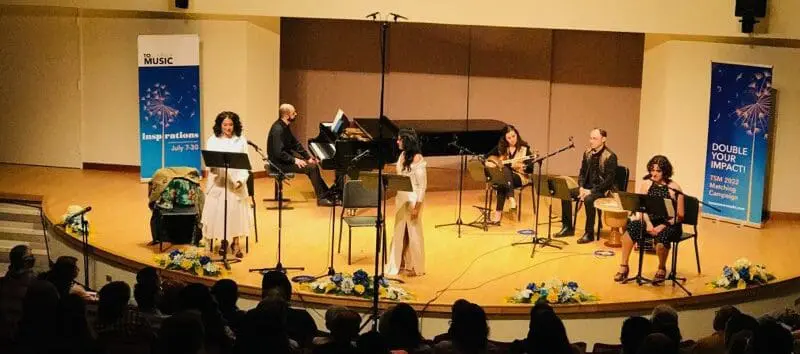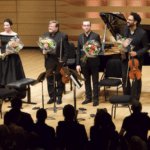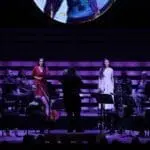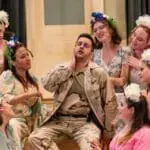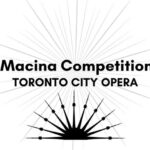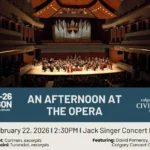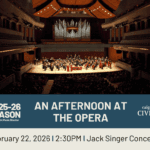Afarin Mansouri’s new Farsi language opera Zuleykha was workshopped last night at Walter Hall as part of the Toronto Summer Music Festival. I knew the piece would be presented concert style but I confess I wasn’t expecting a workshop or for the work to be presented in quite as incomplete a form as it was. We got excerpts from the first act linked with an English language narration, a brief summary of the second act and the instrumental part of the second act finale (intended as a chorale eventually). The instrumental ensemble was piano, tar and percussion and the instrumentalists also stood in for the chorus.
What we heard gave some indication of what the final work may be like so let’s work with that. The first act deals with Zuleykha coming to terms with her unhappiness as the trophy wife of the royal official Potiphar whereas, in fact, she is in love with the prophet Joseph who she has tried to seduce. She is aided by a second character, ostensibly a maid, who appears to her as various characters from her life; father, mother, Potiphar, Joseph. The second act apparently deals with a seven stage mystical journey in which Zuleykha becomes more enlightened about life and love through Sufi and other mystical poetry.
Musically it’s a mix of western classical and Persian styles. Zuleykha, sung by Anne-Marie Ramos, gets a fairly conventional soprano part which she delivered to good dramatic effect. Tahirih Vejdani, as the maid, has more of a mix of styles with a leaning towards classical Persian style which seems particularly adept at. There’s a similar mix in the instrumental music. The piano part (Saman Shahi) makes a fair amount of use of extended techniques and sounds decidedly modern and western. Padidah Ahrarnejad on tar contributes, unsurprisingly, something more Persian sounding. Ali Massoudi on percussion covers a lot of bases in both traditions.
Zuleykha has already been quite a long term project for Mansouri and Loose Tea Music Theatre but there still seems to be a lot of work to do before it’s ready for prime time. It’s got some good ideas and the blend of musical styles is interesting and has potential to become more so with a larger ensemble and a proper chorus. In other respects it’s very hard to judge where it’s going. The first act is fairly straightforward narrative and so should not be hard to stage. The second act though sounds very challenging. How does one stage mystical poetry?
I guess only time will tell.
Opera Canada depends on the generous contributions of its supporters to bring readers outstanding, in-depth coverage of opera in Canada and beyond. Please consider subscribing or donating today.


